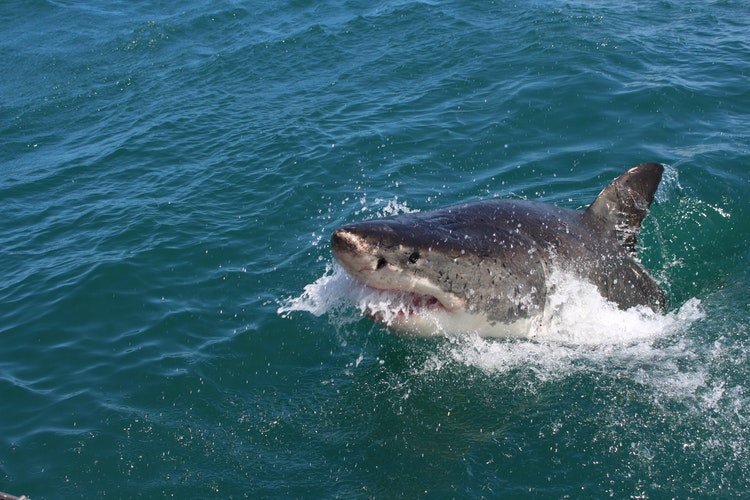
OTTAWA — Carving fins off live sharks and tossing them in the ocean to drown will be illegal in Canada as early as Friday.
Importing shark fins that are no longer attached to sharks will also be against the law, as part of efforts to prevent Canada from being complicit in the practice of “shark finning” elsewhere.
“It is a practice that is not sustainable and is inhumane,” Fisheries Minister Jonathan Wilkinson said Thursday.
Shark finning has been barred as a condition of getting a fishing licence in Canada since 1994 but legislation that passed through Parliament this week will turn those licensing conditions into law.
Canada is the first country in the world to ban the import and export of unattached shark fins.
Wilkinson held a news conference about the ban at a Toronto memorial to filmmaker Rob Stewart, whose 2007 documentary “Sharkwater” helped raise global awareness of the problem. Stewart died in a scuba diving accident in Florida in 2017 making a follow-up to “Sharkwater,” and his parents, Brian and Sandy Stewart, said Thursday their son would be very proud about this development.
“This is a huge step for Canada,” Brian Stewart said. “We’ve got to stop the devastation in the world’s oceans.”
The United States has similar legislation in Congress, which the Stewarts hope will gain traction following Canada’s move on the issue.
Multiple bills have been introduced but not passed at the federal and provincial levels over the last decade to end the practice in Canada, which is the largest importer of shark fins outside of Asia.
This latest legislation had all-party involvement. It was introduced in 2017 by Conservative Sen. Michael MacDonald and sponsored in the House of Commons by NDP MP Fin Donnelly. However in early June, it became clear that the bill, as a private member’s bill, was unlikely to pass before Parliament rose.
With a federal election looming, if the bill didn’t pass this spring, it would once again die and have to be started from scratch with the new Parliament in the fall. So Wilkinson worked with the Senate, which considered other amendments to the Fisheries Act in Bill C-68, to add most of MacDonald’s bill.
That legislation passed the Senate for the final time on June 18, and will become law as soon as it is proclaimed. That is currently expected to happen on Friday.
“It’s a historic moment,” said Rebecca Aldworth, executive director of Humane Society International/Canada.
She said the decision should lead to a reduction in shark deaths because so much of the shark-fishing industry is based on finning. It is more lucrative for shark fishers to carve off the fins and carry only them on their boats, because they fetch the best price.
Brian Stewart noted that since his son made his first film about the shark-fin industry, a billion sharks have been killed around the world for their fins. One-third of the shark fins sold in the world come from endangered shark species.